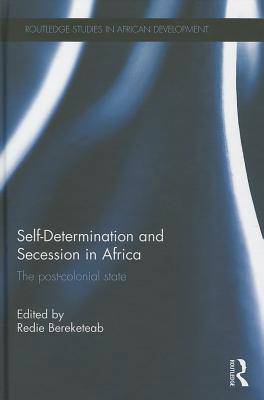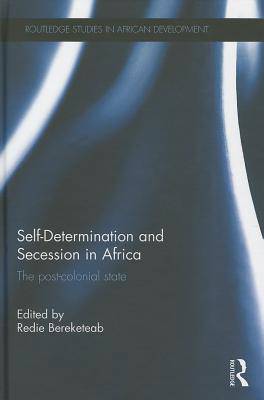
- Afhalen na 1 uur in een winkel met voorraad
- In januari gratis thuislevering in België
- Ruim aanbod met 7 miljoen producten
- Afhalen na 1 uur in een winkel met voorraad
- In januari gratis thuislevering in België
- Ruim aanbod met 7 miljoen producten
Self-Determination and Secession in Africa
The Post-Colonial State
Omschrijving
This book provides a unique comparative study of the major secessionist and self-determination movements in post-colonial Africa, examining theory, international law, charters of the United Nations, and the Organisation of African Unity (OAU)/African Union's (AU) stance on the issue. The book explores whether self-determination and secessionism lead to peace, stability, development and democratisation in conflict-ridden societies, particularly looking at the outcomes in Eritrea and South Sudan.
The book covers all the major attempts at self-determination and secession on the continent, extensively analysing the geo-political, economic, security and ideological factors that determine the outcome of the quest for self-determination and secession. It reveals the lack of inherent clarity in international law, social science theories, OAU/AU Charter, UN Charters and international conventions concerning the topic.
This is a major contribution to the field and highly relevant for researchers and postgraduate students in African Studies, Development Studies, African Politics and History, and Anthropology.
Specificaties
Betrokkenen
- Uitgeverij:
Inhoud
- Aantal bladzijden:
- 294
- Taal:
- Engels
- Reeks:
Eigenschappen
- Productcode (EAN):
- 9781138790810
- Verschijningsdatum:
- 8/08/2014
- Uitvoering:
- Hardcover
- Formaat:
- Genaaid
- Afmetingen:
- 165 mm x 241 mm
- Gewicht:
- 544 g

Alleen bij Standaard Boekhandel
Beoordelingen
We publiceren alleen reviews die voldoen aan de voorwaarden voor reviews. Bekijk onze voorwaarden voor reviews.








